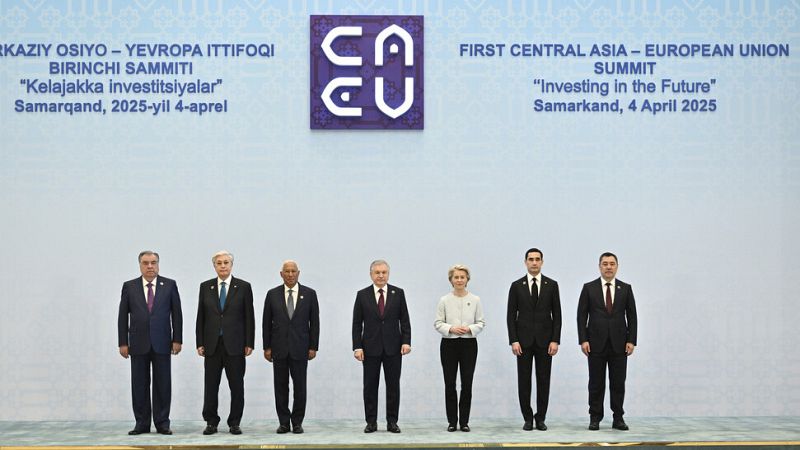Central Asia eager to cooperate with the EU ‘as a bloc’

Two main messages resonated through all the speeches of Central Asian leaders at the first EU-CA summit in Samarkand, Uzbekistan.
One was that they demonstrated once more that the region achieved stability, good neighborly relations and harmonious approach to further development. And that the European Union recognised it by speaking to them as if they were a bloc, which gave them more weight on the international arena.
The region’s largest economy, Kazakhstan, has high expectations for the next steps as the county is well aware of its importance for the European Union.
13% of all oil and gas imports in the EU comes from Kazakhstan while investment from the European bloc account for 43% of all foreign investment in the largest central Asian country.
Speaking to Euronews, Deputy Prime Minister of Kazakhstan Serik Zhumangarin says the summit in Samarkand was an opportunity to show that the Central Asia region is stable and can equally contribute to the strategic relations with Europe.
“The main conclusion for us is that, in principle, Central Asia is now perceived as a whole. Central Asia is a reliable bridge between China, South-East Asia and Europe, but it is also a reliable supplier of the necessary materials. We are talking about everything from uranium, oil and gas to critical materials, foodstuffs, wheat.”
The second important message is that Central Asian leaders eagerly embrace all forms of cooperation proposed to them by European leaders on the summit because they saw it as a way to further development.
This is reason why they invested lots of time and effort in Samarkand to present new projects, programmes and initiatives that could benefit from cooperation with European institutions, financial organisations and private investors from all the EU member states.
Today

